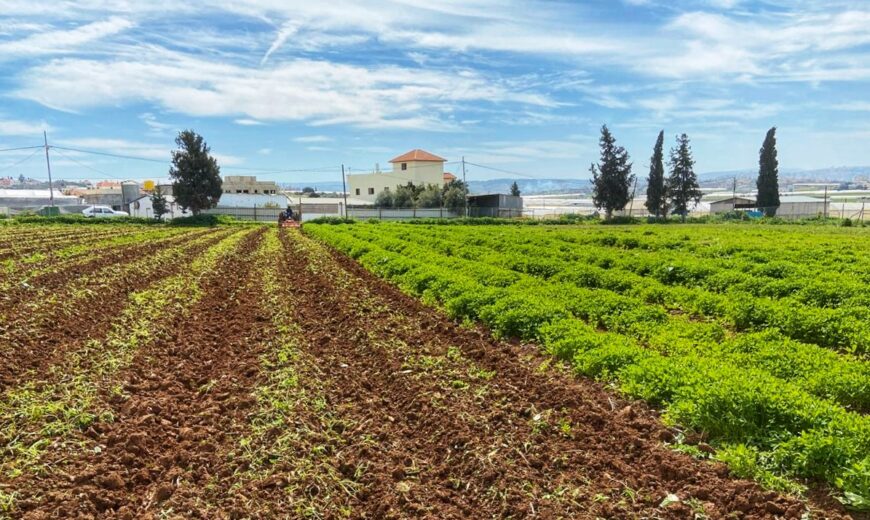
The Simple Secret to Improving Your Soil’s Fertility
I want to let you in on a little secret – farmers have been enriching their soil for generations in a completely natural way without the use of harmful pesticides! The process is using ‘green manure’ – i.e. growing nitrogen-fixing plants that are cut down and then fed into the soil! And we’re going to show you how you can use this same method to improve your soil’s health!
Take the guesswork out of gardening..
The Gardening Secrets Blueprint
Why nitrogen is so important for healthy vegetables
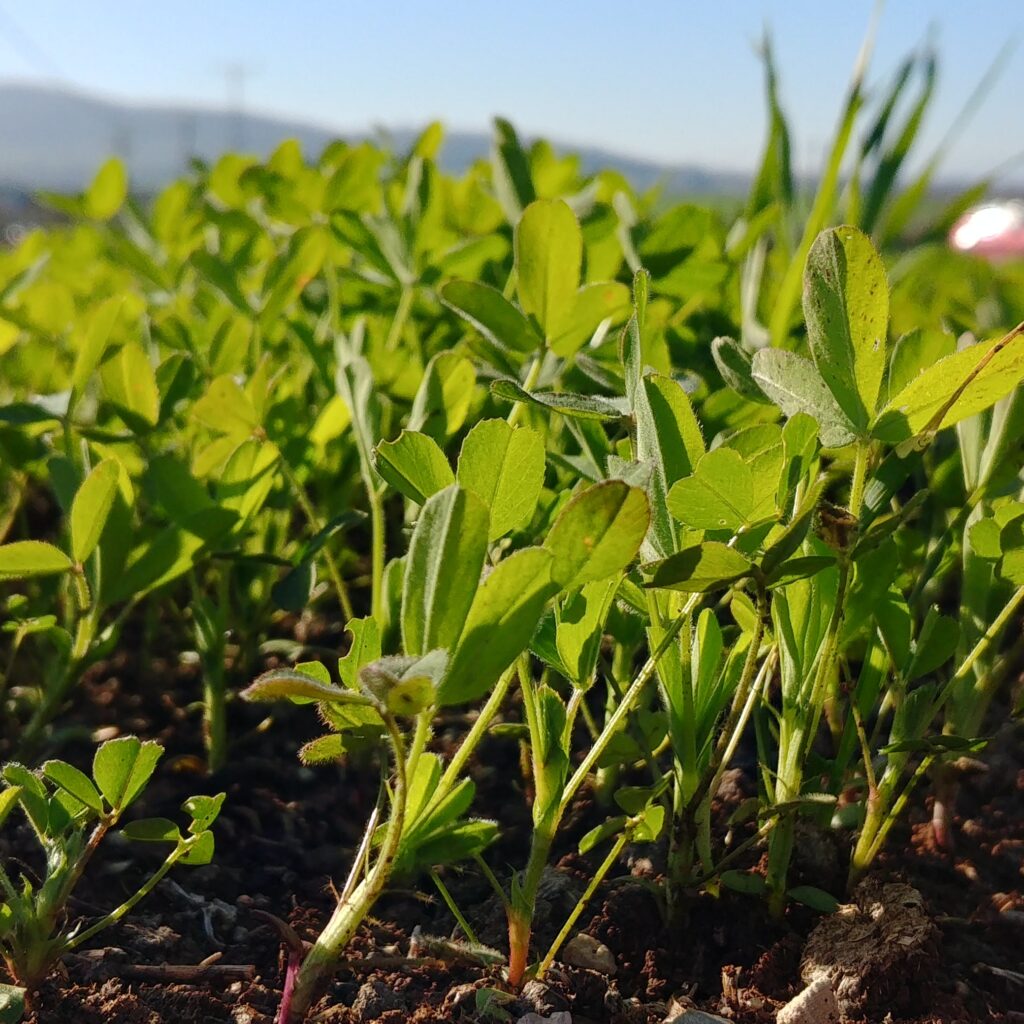
Nitrogen is one of the essential elements for plant growth (along with potassium and phosphorus). It’s part of the green chlorophyll molecule (required for photosynthesis) and is one of the main components of the plant cell. It enhances leafy growth, aids formation of healthy flower buds, and helps fruits form. It also functions as a catalyst for other minerals. Now since it’s so essential, you can easily have a situation where plants deplete all the nitrogen available in their soil. Nitrogen also naturally leeches away from soil with the twin effects of the sun and water.
And here’s the irony: while nitrogen is the most abundant uncombined element on the planet, consisting about 78% of the atmosphere, plants can’t take it in from the air! Atmospheric nitrogen must be converted, via a series of processes, to nitrates, which can be absorbed by plant roots.
The problem: Using synthetic nitrogen fertilizers
So where does a regular gardener find nitrates? She turns to fertilisers. Ever heard of NPK fertilisers? That’s just a fancy way of saying “nitrogen, phosphorus, potassium” fertilisers. But the thing is, the majority of these fertilisers are synthetic. They are harmful in more ways than one:
😔 They harm the environment during their manufacture
😔 Using these fertilisers make it easy to overload the nitrogen content in your soil. This harms your garden and your local environment
😔 They can cause an imbalance in your soil ecosystem
😔 An excess of nitrogen can over-stimulate green growth, which means your plants put on leafy growth at the expense of flowers and fruits
😔 Overuse of these fertilisers leads to nutrient leaching, destroying local rivers, waterways and marine environments
But we’re not regular gardeners, are we, you and I? We’re organic gardeners. So here’s our solution for improving soil health with regards to naturally adding nitrogen to the soil, while also adding organic matter, preventing erosion and improving overall soil health.
But we’re not regular gardeners, are we, you and I? We’re organic gardeners.
The solution: Growing organic nitrogen-fixing crops
https://youtu.be/RwIVbdysamA
Certain soil microbes ‘fix’ nitrogen from the atmosphere into the soil. As a result, nitrogen is converted into a delicious form that your vegetable plants can now soak up!
Fabaceae – or plants of the leguminous family – work in symbiosis with nitrogen-fixing rhizobium bacteria which are present in tiny nodules in the roots of the plant. Together with the legume plant, they convert nitrogen from the air into nitrogen that is available in the soil. When these nitrogen-fixing plants die, decomposing microbes in soil break down the plant material and pass nitrogen into the soil system.
So what are these magical plants that help maintain a natural soil balance? Here are just a few:
😊 Alfalfa
😊 Fava Beans, Green Beans, French Beans, Runner Beans
😊 Garden Peas, Field Peas, Pigeon Peas
😊 Soybeans
😊 Peanuts
😊 Lupins
😊 White Clover, Red Clover
How you can improve your soil by growing nitrogen-fixing plants
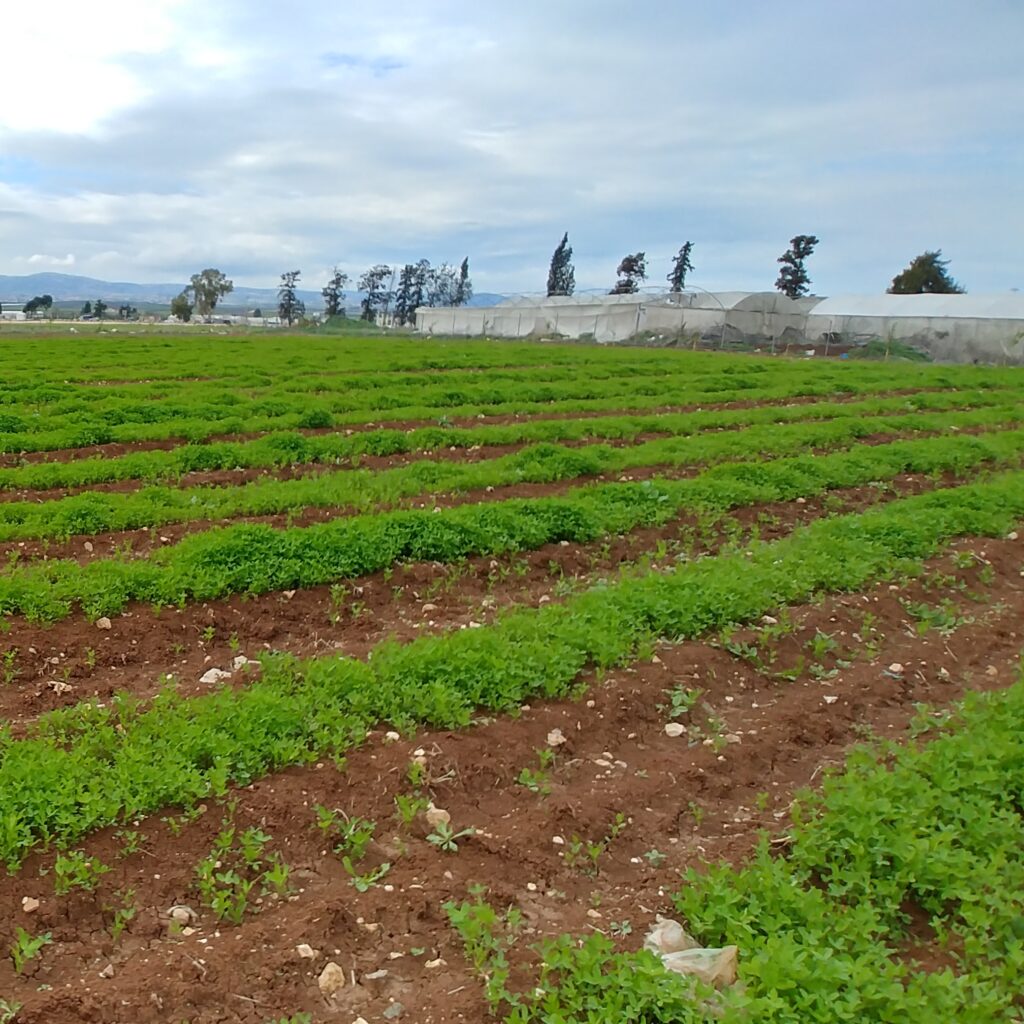
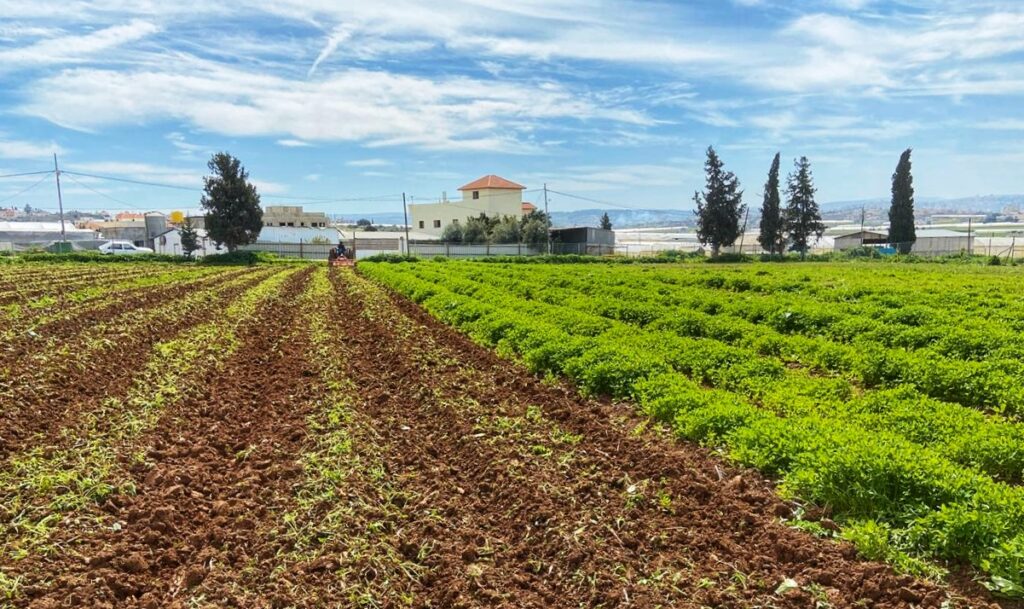
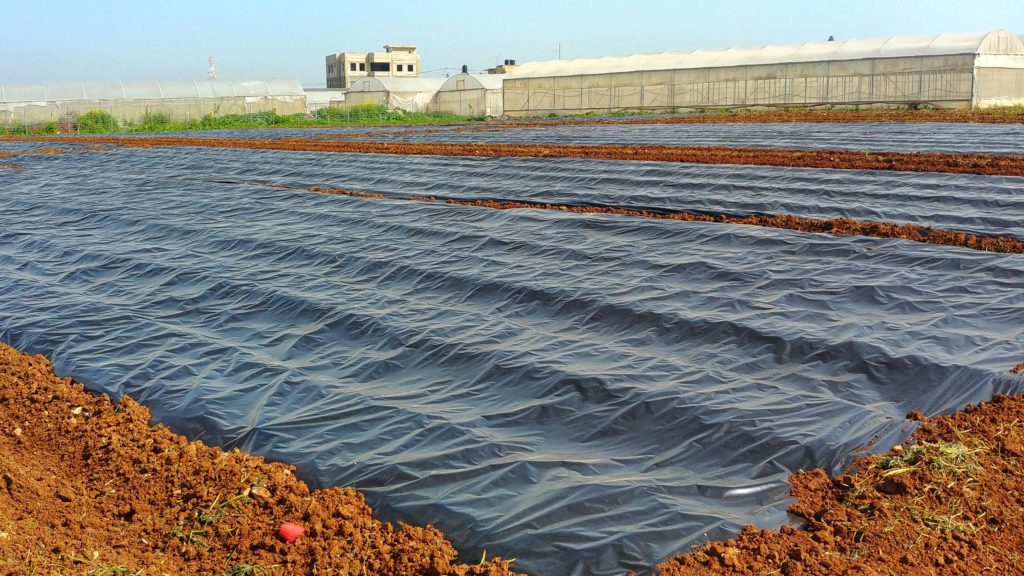
To improve your soil, plant one of the above nitrogen-fixers; alfalfa is what we use as it is the most easily available. Note that alfalfa does not do well in the heat of the summer, especially in the Gulf.
Plant the alfalfa by broadcasting your seeds. Use between 6-8 grams of alfalfa per square meter of soil. After broadcasting, use a rake to mix the soil a bit with the alfalfa to ensure there is seed to soil contact. If your soil is of poor quality, add compost when planting as well. Next, water regularly – once a day. After about 7-8 weeks, when the alfalfa has grown 20-30cm tall, cut it down to the level of the soil and immediately cover with mulch (either nylon/straw) for 3 weeks to give the alfalfa the time to decompose. (You can also choose to wait until half of the alfalfa has flowered; at this point the nitrogen content in the plant is at its peak). The decomposition process will both release nitrogen into the soil and add biomass (organic nutrient matter) to the soil. Remove the nylon/mulch and plant your vegetable crops in this fertile, nitrogen-rich soil.
Other ways to improve soil health
As we’ve explained in The Gardening Secrets Blueprint, using cover crops, adding compost, crop rotations all improve soil health.
Don’t forget to include nitrogen-fixers into your garden rotation plan to increase its soil’s nitrogen content. Your plants will thank you!
Jefna
October 29, 2020WhICH is the best option of crop cover suitable for UAE CLIMATE ??
Nasser
October 29, 2020Alfalfa (‘barseem hijazi’ in Arabic) works well in the UAE as does does cowpea (‘loobiya’); but I wouldn’t grow it during the hottest months i.e. July and August. Will you be trying it, Jefna?!
Yellow plants making you blue? Avoid plant nutrient deficiency of the 7 Micronutrients your vegetables need to grow - SoWeGrow
March 18, 2021[…] Practice “green manuring” – grow a crop of leguminous plants followed by cutting and incorporating them into the […]